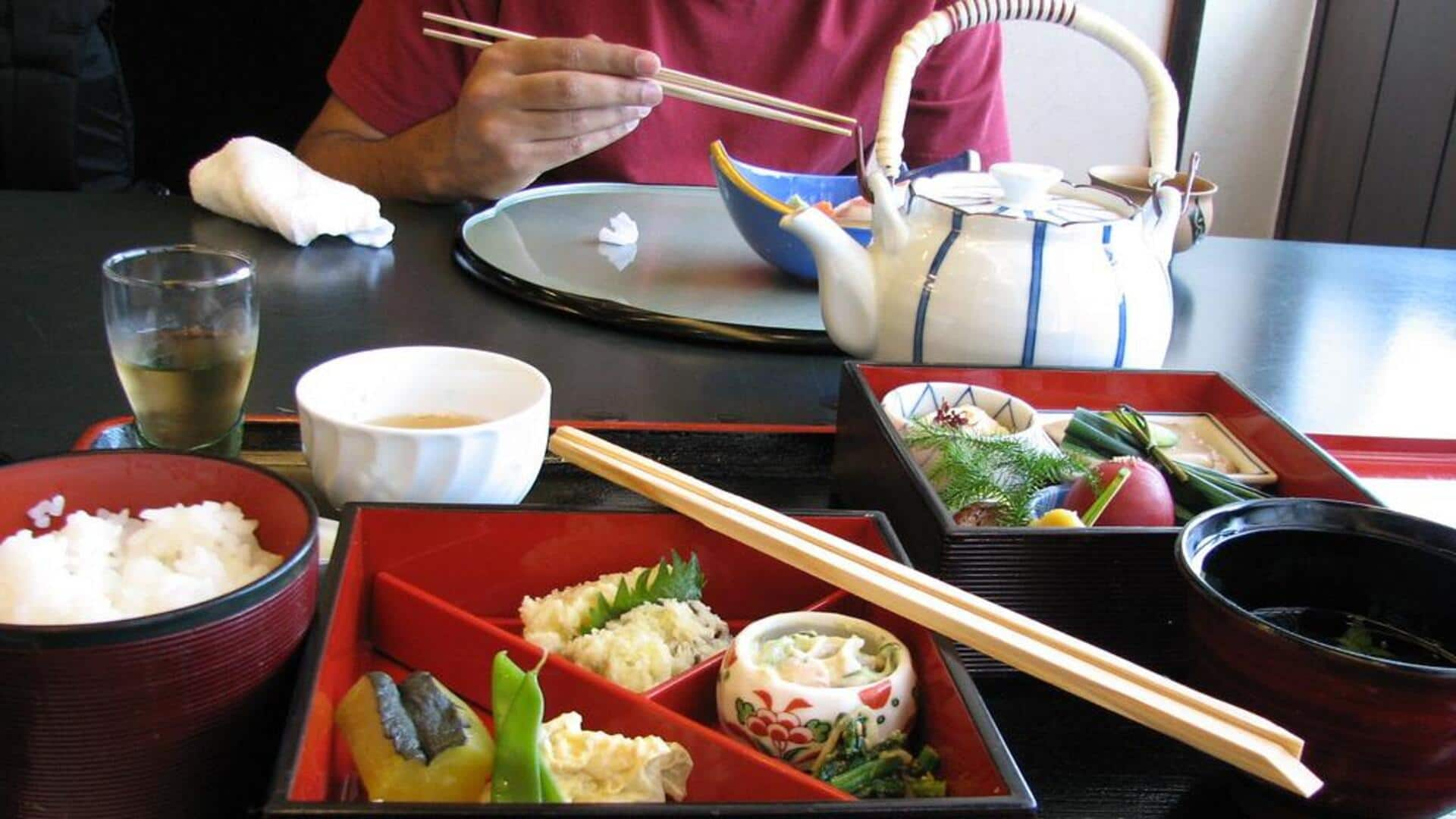
Gratitude before meal: The essence of saying 'itadakimasu'
What's the story
If you have been following Japanese culture, you must have come across the phrase "itadakimasu." Itadakimasu, pronounced "ee-tah-dah-kee-mas" is simply translated to "I humbly receive." However, during mealtime, it equals saying "Let's eat," "Bon appétit," or "Thanks for the food." Derived from the Japanese verb "itadaku," meaning to receive or to take, "Itadakimasu" is a customary phrase uttered before starting a meal.
Significance
What does the phrase signify?
Uttering "itadakimasu" expresses a deep sense of appreciation for the food, the effort that went into its preparation, and the interconnectedness of all beings involved in bringing the meal to the table. The itadakimasu ritual aligns with the principles of mindful eating. By taking a moment to express gratitude and reflect on the food's journey, individuals cultivate a heightened awareness of their eating experience.
Origin
History
The roots of itadakimasu can be traced back to Japan's cultural and religious practices, particularly influenced by Buddhism and Shintoism. Both these traditions emphasize gratitude and mindfulness, principles that have been seamlessly woven into the mealtime rituals. Thanking the plants, animals, farmers, chefs, and everything else that went into the meal preparation is one way to apply this way of thinking to mealtimes.
Process
How to say itadakimasu correctly
Now let's attempt to carry it out. It's not that difficult. All you have to do is four steps. Join your hands in a clasp, say itadakimasu, make a small bow (or not, depending on who you are dining with) and savor your meal. Itadakimasu remains an integral part of the Japanese dining experience, whether at home, in a restaurant, or at the workplace.
Teachings
What it teaches
The brief pause that an individual takes before diving into their meal is an opportunity to express gratitude for the nourishment about to be received. Itadakimasu is not only a recognition of the effort put into the meal but also an acknowledgment of the lives sacrificed to provide it. The phrase also fosters a sense of connection among those sharing the meal.